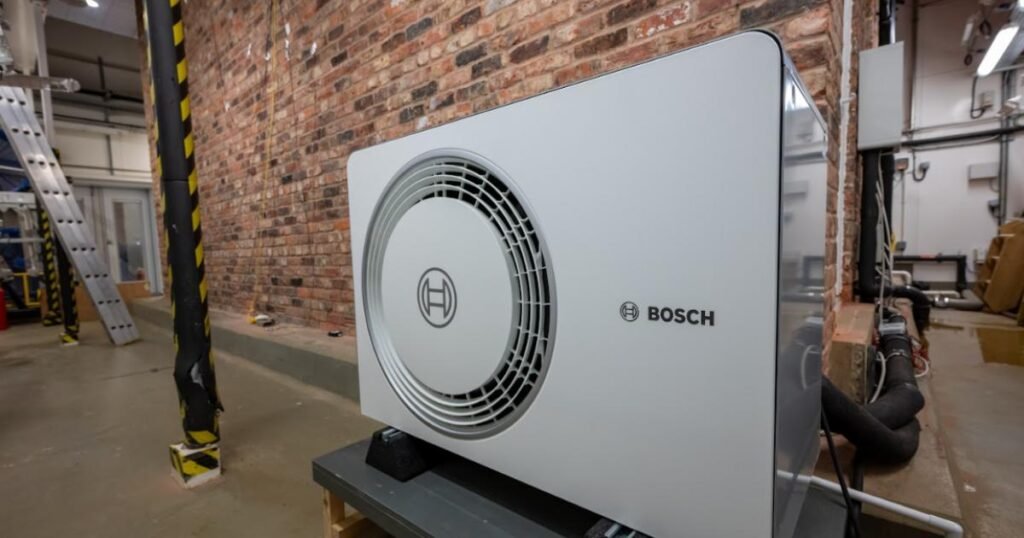As a weighted average of 94 per cent of annual heat demand would come from the heat pump element, this study positions the technology as a highly effective solution to lower carbon heating.
The joint research project between manufacturer Worcester Bosch and University of Salford took place at the latter’s Energy House Lab – a full-scale reconstruction of a pre-1920 end-terrace home commonly found across the UK, that could simulate different outdoor temperatures ranging from -3C to 16C.
The findings from the trial show that a hybrid system can perform exceptionally well in typical UK homes.
Based on the analysed data from the trial, a hybrid heat pump has the potential to deliver a weighted average of 94 per cent of the total annual heat demand from the heat pump element, see the heat pump handle 100 per cent of the heating requirements when the outdoor temperature is 7C or above, and when at coldest (-3C) contribute above 70 per cent of the total space heating, and reduce 1,270kg of CO2 compared to a boiler-only saving.
The trial involved a ‘bivalent parallel system’ – where a heat pump and boiler run in parallel via a smart ‘hybrid manager’.
The heat pump acts as the primary heat source, with the boiler only adding supplementary heat to meet demand when the outdoor temperature drops.
This enables efficient heat delivery – particularly during winter peaks when demand is at its highest.
The company believes the findings present strong evidence that hybrid heat systems should be considered in government initiatives that encourage increased uptake of lower-carbon technologies.
Carl Arntzen, CEO of Worcester Bosch, said: “We believe government recognition and financial support for hybrid heat pumps, such as including this proven technology in the Boiler Upgrade Scheme (BUS), presents an opportunity to make the transition to lower carbon heating faster, fairer and more effective.
“It offers a practical and accessible stepping-stone on the journey to net zero for millions of households.”

